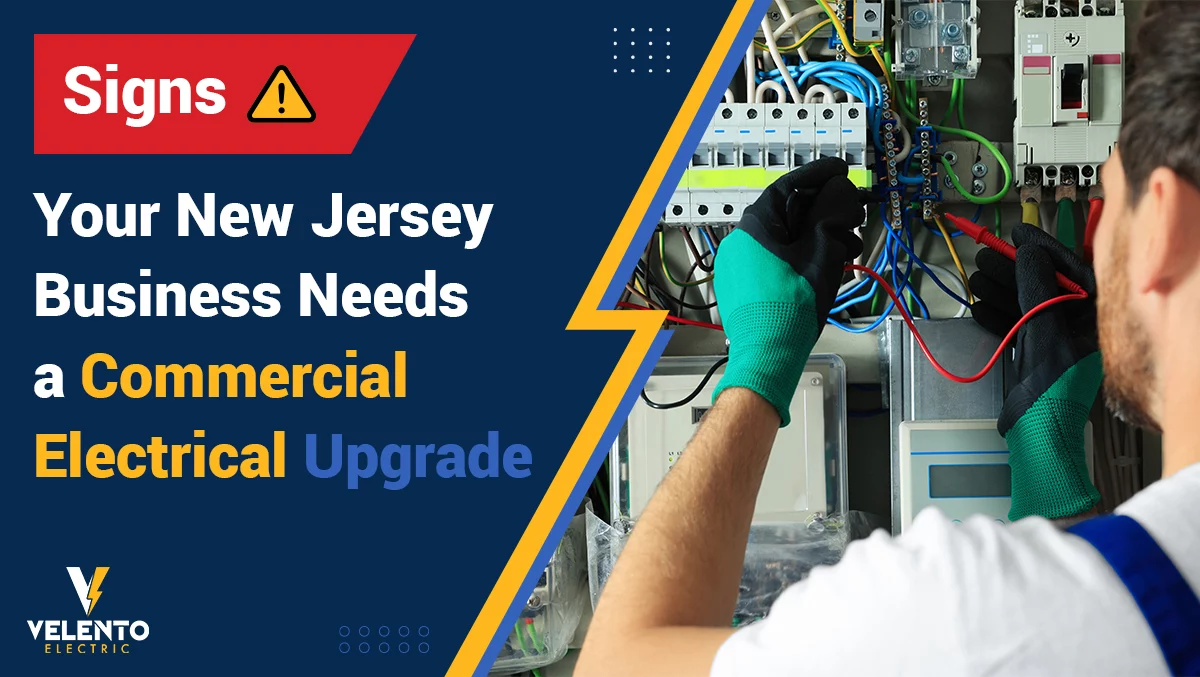Introduction: Powering the Success of Your Business
In today’s fast-paced commercial environment, your electrical system is more than just a utility—it’s the lifeline of your business operations. From powering equipment and lighting to supporting security systems and communications, your commercial electrical infrastructure is critical. But over time, even the most robust systems wear down or become outdated.
For business owners in New Jersey, recognizing the signs that your property needs a commercial electrical upgrade can help you avoid downtime, reduce fire risks, improve energy efficiency, and ensure compliance with current codes. In this comprehensive guide, we’ll walk you through the most important signs to watch for and how upgrading your system can protect your bottom line.
Why Commercial Electrical Systems Must Be Updated
Before diving into the warning signs, it’s essential to understand why upgrades are necessary in the first place.
Commercial properties consume large volumes of electricity daily. As your business grows—whether you add new machinery, expand office space, or integrate automation—your electrical demands increase. If your system isn’t equipped to handle these changes, the risk of breakdowns, outages, and safety hazards escalates quickly.
Modern business owners also need electrical systems that are:





Let’s look at the key indicators that it’s time to make a move.
- Frequent Electrical Issues and Downtime
One of the most telling signs that your commercial property is overdue for an electrical upgrade is repeated system failures.
Common Red Flags:





These aren’t just minor annoyances—they’re symptoms of a system that’s under strain and unable to keep up with your business operations. Persistent issues may eventually lead to equipment damage, data loss, or even complete system failure, interrupting workflow and reducing profitability.
- Outdated Electrical Panels
Your electrical panel is the control center of your system. If it’s more than 20–25 years old, chances are it’s not capable of supporting today’s electrical demands safely and efficiently.
Signs Your Panel Needs Replacing:





Many older panels weren’t designed with today’s equipment in mind—especially in industries relying on high-powered computers, HVAC units, commercial-grade appliances, or manufacturing machinery.
Upgrading your panel ensures stable performance, fire safety, and energy efficiency—all while supporting future expansions.
- Lack of Power Capacity for New Equipment
If you’ve recently added—or are planning to add—new machinery, computers, HVAC units, or commercial kitchen appliances, you’ll want to ensure your system can handle the additional load.
Signs of inadequate power capacity include:




Rather than risking damage to your equipment or wiring, it’s wise to consult a licensed commercial electrician for a load calculation and capacity assessment.
- Non-Compliant or Unsafe Wiring
Electrical codes are constantly evolving. What was acceptable a decade ago might now be considered a safety hazard. For commercial properties, non-compliance can also result in fines, failed inspections, and legal liabilities.
Signs of wiring problems include:





If your wiring is outdated, your business is at increased risk for electrical fires, arc faults, and employee injury—all of which could be catastrophic. A full electrical inspection and system modernization are not just advisable—they’re essential.
- Inefficient Lighting Systems
Lighting represents a large portion of your commercial energy bill. If you’re still using fluorescent or incandescent lighting, you’re likely wasting energy—and money.
Switching to LED lighting not only cuts energy usage by up to 70% but also reduces maintenance with longer-lasting bulbs and fixtures.





Lighting upgrades can also qualify for local utility rebates and tax incentives, further improving your return on investment.
- You’ve Expanded or Renovated Without an Electrical Review
If your business has moved to a larger location or undergone recent renovations, it’s critical to assess whether your electrical system was evaluated and upgraded accordingly.
Failing to update your system post-renovation can lead to:




A comprehensive electrical review ensures that every outlet, fixture, and circuit supports your updated layout, equipment, and technology needs.
- Over-Reliance on Extension Cords and Power Strips
It may seem harmless, but an overuse of extension cords, adapters, and power strips is a clear indication that your system lacks sufficient permanent outlets or circuit access.



If your team is stringing cords across floors or walls to power everyday devices, it’s time to rewire and reconfigure your space for safety and efficiency.
- Sudden Increases in Utility Bills
An outdated or overloaded electrical system can operate inefficiently, wasting energy and inflating your monthly utility bills. Over time, those added costs can add up significantly.
Causes may include:




An energy audit, followed by a targeted commercial electrical upgrade, can reduce these costs while also improving overall system health.
- You’re Not Ready for Renewable Energy or EV Charging
Many New Jersey businesses are now exploring renewable energy solutions and electric vehicle infrastructure. But legacy electrical systems often can’t support solar panel arrays, energy storage systems, or EV chargers.
If you’re looking to:



…you’ll need a system that is ready to scale, safely and legally. A proactive upgrade puts you ahead of the curve and positions your business as a sustainability leader.
- Lack of Smart Controls or Automation Integration
Smart buildings are quickly becoming the standard. If your business still relies on manual light switches, thermostats, or panel access, you’re missing out on:




Upgrading your commercial electrical system enables the integration of smart panels, occupancy sensors, load-shedding systems, and energy management dashboards—bringing more control and insight into your operations.
Benefits of a Commercial Electrical Upgrade
Upgrading your commercial electrical infrastructure is more than just a repair—it’s a business investment that pays dividends in safety, performance, and profitability.

- Improved safety for staff and property
- Increased energy efficiency and lower operating costs
- Enhanced reliability and reduced downtime
- Greater scalability for growth and future tech
- Compliance with NJ building codes and insurance requirements
- Higher property value and resale appeal
- Peace of mind knowing your system is modern and secure
In today’s competitive business environment, the companies that adapt early are the ones that thrive longer.
The Cost of Inaction: What Happens If You Delay an Electrical Upgrade?
While most business owners understand the benefits of upgrading, many still hesitate due to concerns about budget, downtime, or prioritization. However, the cost of inaction is often far greater than the investment in a proactive upgrade.
Real Risks of Delaying an Upgrade:





The message is clear: waiting only increases risk—while early action protects your business and positions you for growth.
Industry-Specific Considerations: Custom Needs for Different Business Types
Every commercial space has unique power needs and vulnerabilities. A one-size-fits-all approach doesn’t work when it comes to electrical infrastructure. Here’s how different business sectors in New Jersey benefit from tailored electrical upgrades:

- Require stable, uninterrupted power for IT networks and communications
- Need energy-efficient lighting and HVAC systems for employee comfort
- Benefit from load balancing and surge protection for sensitive electronics

- Rely on consistent lighting, POS systems, and climate control
- Use illuminated signage that may overload aging circuits
- Can attract energy efficiency tax credits with lighting retrofits

- Operate heavy machinery requiring high-capacity electrical panels
- Need 3-phase power and backup generators for critical operations
- Must comply with OSHA electrical safety standards and regular audits

- Demand strong, continuous power for appliances, walk-in coolers, and fryers
- Often operate in older buildings with insufficient wiring
- Need GFCI compliance for wet environments and customer areas

- Require power redundancy for guest comfort and security systems
- Benefit from energy automation and smart room controls
- Need EV charging, backup power, and scalable load management
Whatever your sector, a licensed commercial electrician should assess your current load, growth forecast, and compliance requirements to design a customized upgrade plan.
Preparing for the Upgrade: What to Expect During the Process
Many business owners are unsure what a commercial electrical upgrade entails. Let’s remove the guesswork and walk you through what to expect when working with a professional team like Velento Electric.
Step 1: Electrical Audit & Load Assessment
A licensed electrician will visit your facility to:




Step 2: Scope of Work and Proposal
You’ll receive a detailed proposal outlining:




Step 3: Permits and Scheduling
Velento Electric handles:



Step 4: Installation and Testing
Work is completed to the highest standards of safety and quality. This includes:




Step 5: Ongoing Support and Maintenance
After installation, you’ll receive:




This structured process ensures peace of mind and delivers a future-ready electrical system without guesswork or delays.
Building a Future-Ready Business: Electrical Infrastructure as a Competitive Advantage
In today’s hyper-connected economy, being “future-ready” isn’t just a marketing buzzword—it’s a foundational requirement for businesses that want to thrive. A well-designed, upgraded electrical system becomes a strategic asset, enabling adaptability in a world driven by technology, data, and automation.
Electrical Infrastructure and Digital Transformation
As more businesses shift toward cloud-based services, digital workflows, and connected devices, the demand for reliable electrical performance grows exponentially.



Without a strong electrical backbone, these tools can malfunction, slow down, or worse—go offline at critical moments.
By upgrading your commercial electrical system now, you position your business to adopt new technologies without bottlenecks, ensuring operational efficiency and reduced downtime across departments.
Meeting the Sustainability Expectations of Customers and Partners
Sustainability isn’t just a trend—it’s a business imperative. Customers, investors, and even potential employees are paying close attention to a company’s energy practices and carbon footprint.
How Electrical Upgrades Support Sustainability Goals:




In New Jersey, businesses seen actively pursuing environmental responsibility are more likely to win contracts, qualify for green certifications, and attract eco-conscious customers.
Your electrical system is at the core of your sustainability story. Without it, green initiatives can’t succeed at scale.
Managing Risk in the Age of Compliance and Litigation
Failing to upgrade your outdated electrical infrastructure doesn’t just carry financial risk—it can create serious legal liabilities and compliance failures.
Regulatory Risks to Watch For:
- NFPA 70 (National Electrical Code) updates that mandate newer safety standards
- OSHA regulations concerning workplace electrical safety
- Local municipal codes specific to fire prevention and energy use
- Insurance carrier requirements tied to commercial equipment safety
If your building’s electrical system is found to be outdated during an inspection or incident investigation, you could face:




Modernizing your system not only meets compliance—it reduces your overall business liability footprint.
Future-Proofing Commercial Real Estate: A Landlord’s Perspective
For property owners and landlords leasing to commercial tenants, your electrical infrastructure directly impacts your building’s marketability, tenant satisfaction, and rental value.
Why Upgrades Make Business Sense for Property Owners:




Investing in a modern commercial electrical system helps ensure your property stays fully leased, highly rated, and well-positioned for the future of workspaces.
Preparing for Business Continuity with Electrical Redundancies
Another overlooked aspect of an electrical upgrade is the ability to introduce fail-safes, backups, and redundancies that protect against blackouts, utility failure, or disaster events.
Key Features That Improve Resilience:




These features are especially vital for:
- Medical offices and clinics
- Data centers
- Security firms
- Warehouses and logistics centers
- Financial institutions
In a world where one hour of downtime can result in lost clients, damaged goods, or data loss, a future-proof electrical system is your first line of defense.
Energy Rebates and Incentives for NJ Businesses
Did you know? New Jersey offers numerous programs to support commercial energy efficiency upgrades. These incentives can significantly offset your investment cost.
Current Opportunities Include:

– Offers rebates for LED lighting upgrades, HVAC improvements, and load reduction measures

– Provides up to 70% coverage of project costs for small- to mid-sized businesses

– Regional utility providers offer targeted incentives for smart thermostats, EV infrastructure, and high-efficiency equipment

– Offers deductions for energy-efficient commercial buildings
A qualified electrician can help guide you through the application process, maximize your rebate eligibility, and ensure your upgrades meet all qualifying criteria.
Questions to Ask Before Hiring an Electrical Contractor
Your upgrade is only as good as the team behind it. When hiring an electrical contractor in New Jersey, be sure to ask the right questions:






With Velento Electric, the answer is always yes. We’ve proudly served New Jersey’s commercial sector for years, bringing technical excellence and a customer-first mindset to every project.
Why New Jersey Businesses Can’t Afford to Wait
The Garden State is experiencing rapid commercial growth, energy code updates, and rising demands on local infrastructure. Businesses that fail to modernize are not only at greater operational risk but may also fall behind competitors who are optimizing their systems for efficiency and compliance.
Whether you run a retail store in Jersey City, a manufacturing facility in Edison, or an office complex in Newark, your electrical system plays a pivotal role in your daily operations and long-term vision.
Why Choose Velento Electric for Your Upgrade
At Velento Electric, we specialize in helping New Jersey businesses upgrade their commercial electrical systems with confidence. Our licensed electricians bring years of experience, deep code knowledge, and white-glove service to every project—no matter the size or complexity.
Our Commercial Electrical Services Include:








We understand what local businesses need—and we deliver solutions built for performance, safety, and the future.
Conclusion: Upgrade Now, Avoid Problems Later
Electrical issues don’t get better with time—they get more dangerous, more expensive, and more disruptive. The signs are there: if your New Jersey business is experiencing power fluctuations, outdated panels, rising bills, or expanding operations, it’s time to act.
A commercial electrical upgrade isn’t just a fix—it’s an opportunity to empower your business with:




Call to Action:
Ready to upgrade your business’s electrical system?



Visit VelentoElectricNJ.com or call us today to schedule your commercial electrical consultation.












